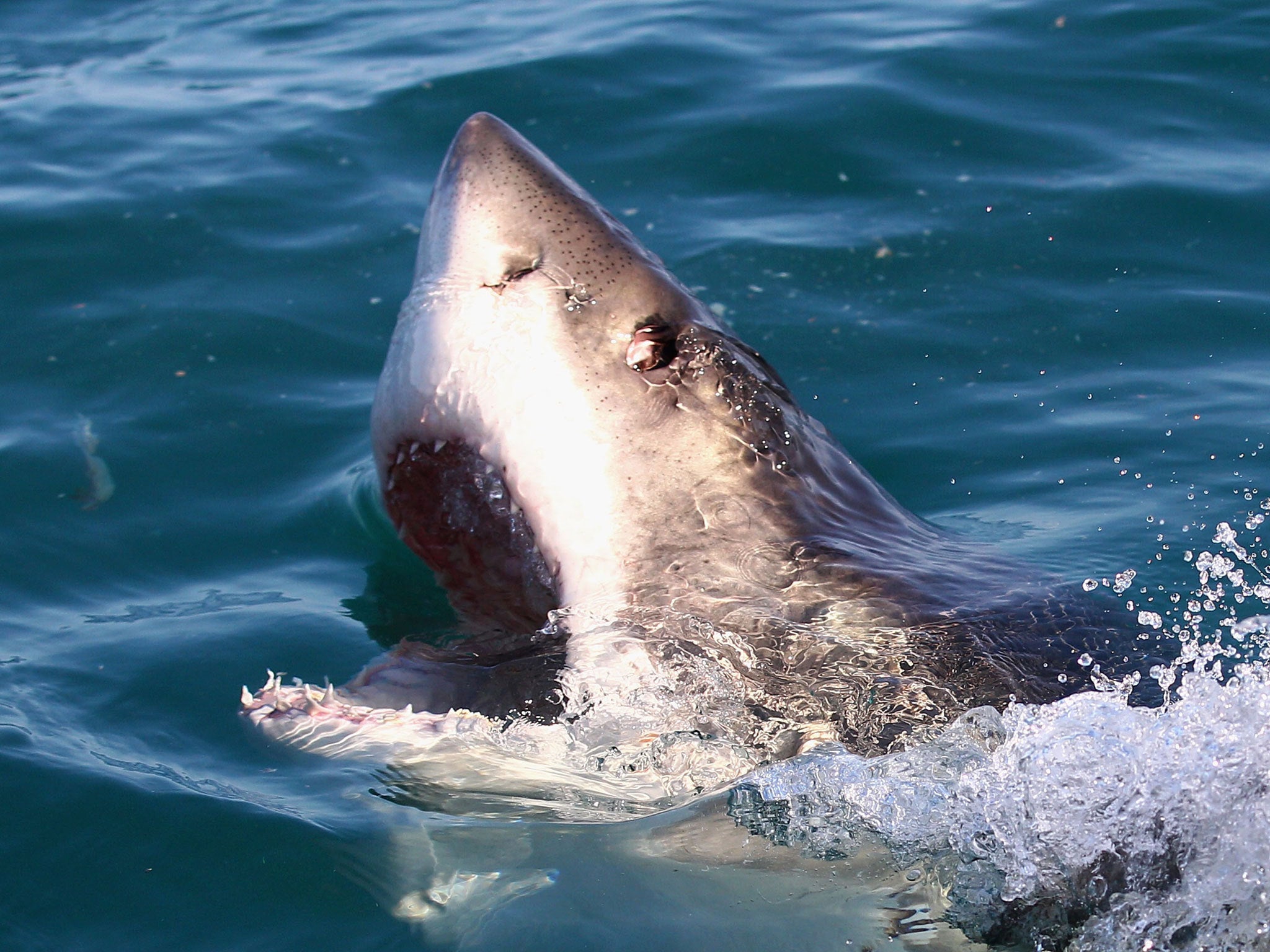Race to track Great White sharks in Atlantic Ocean to solve their mating mystery
Team of scientists intends to track as many sharks as possible for 20 days and run tests on them

A nonprofit will kick off a massive shark “hunt” so it can potentially make history by being the first to discover a great white shark mating site it believes could be off the North Carolina coast.
Ocearch, which says it helps scientists collect “previously unattainable data in the ocean”, said its search for the sharks will be conducted for 20 days, starting from 4 March.
The shark “hunt”, called Expedition Carolinas 2022, is being staged off North Carolina and could possibly make history if the team of scientists prove this to be the coastline where great white sharks gather annually to mate.
Ocearch, in a statement, laid out the objectives of the research, that included tracking sharks and the methods they were using to do so.
The nonprofit said it would “examine fine and broad-scale movements, habitat use, site fidelity, range, residency, and feeding behaviour of white sharks and other large shark species in the northwest Atlantic Ocean using multiple technologies including satellite-linked tagging and passive acoustic telemetry.”
“We are tagging sharks with real-time satellite tags (SPOTs), pop-up satellite archival tags (PSATs), and individually coded acoustic transmitters,” the statement added.
Ocearch officials said shark movements and behaviour would be “actively tracked with SPOTs and passively tracked using PSATs and acoustic receiver arrays.”
Movements will be compared to a number of variables, including water temperature, fishing activity, and prey species, which include grey seals and North Atlantic right whales in the case of the North Atlantic population of white sharks, it pointed out.
The team of scientists intends to track as many sharks as possible between 4 March and 24 March to run tests on them.
“In order to confirm this region as a white shark mating site, blood samples will be collected to measure reproductive hormone levels,” Ocearch said.
“In addition, ultrasound images of the ovary and testes and semen samples from mature male animals will be assessed. Together these samples and diagnostic images will help determine if the adult white sharks present in the Carolinas region, during this season, are reproductively active.”
The Ocearch team wrote on its website that its team had “successfully tagged 83 white sharks throughout the western North Atlantic, collecting data for over 24 science projects that have enabled us to put together the pieces of the life history puzzle of the white shark in the western North Atlantic ocean.”
It said that its puzzle was “nearly solved”, adding that only 17 sharks had to be sampled so it could reach its goal of 100 sharks.
The organisation, however, said one “crucial piece” remained: for it to find the time and place these white sharks mate.
“During Expedition Carolinas 2022, our goal is to gather the fundamental data needed to finally solve this piece of the puzzle,” it explained.
Ocearch Chief Scientist Bob Hueter was quoted as saying by the McClatchy News agency: “We don’t know why the sharks use this place to mate, but our indirect evidence of their mating condition and coming together in this spot at this time leads us to believe this is when and where they mate in the Western North Atlantic.”
He added: “The males continue their north-south movements with the seasons along the coast and continental shelf, only occasionally venturing far offshore.”
If the theory is proven, it would mean North Carolina’s coast teems with great white sharks for about two months in a year.
“We just know that the sample size we’ve tagged is probably a tiny fraction of the number of sharks out there,” Dr Hueter said.
“If we’re able to do so, it will be the first time in history that a white shark mating site will be identified,” Ocearch founder Chris Fischer said.
“This location will be crucial to monitor into the future as we continue to enjoy our slow and steady white shark population recovery off the eastern seaboard and Atlantic Canada,” he added.
Join our commenting forum
Join thought-provoking conversations, follow other Independent readers and see their replies
Comments